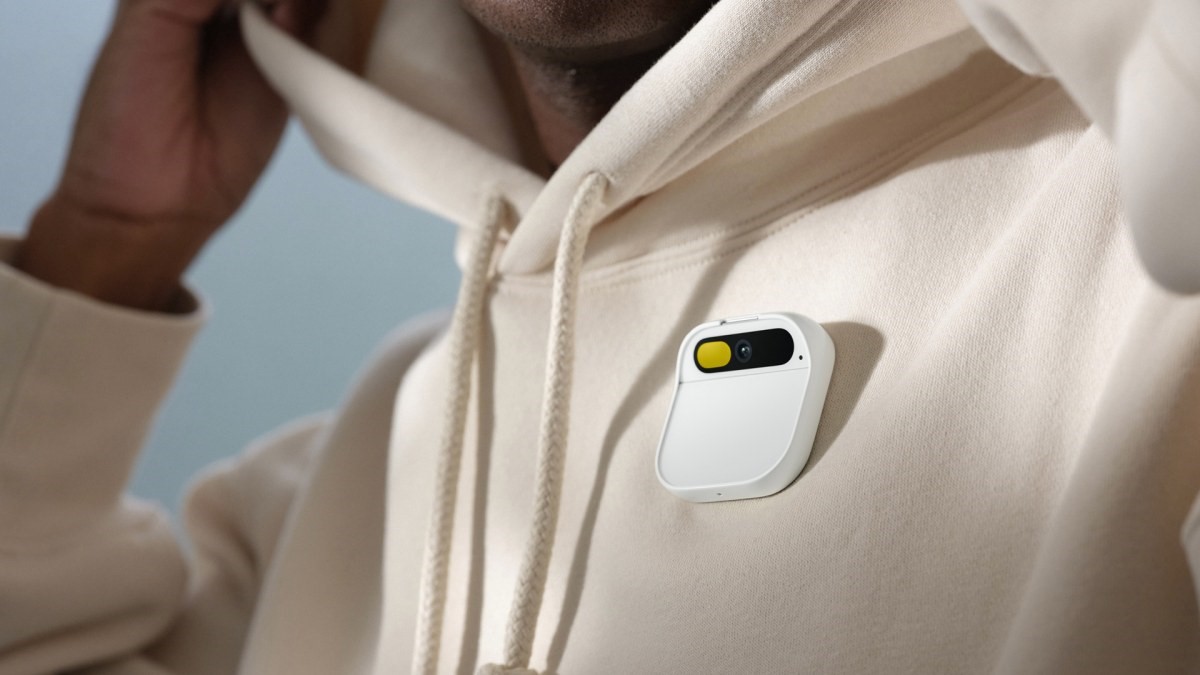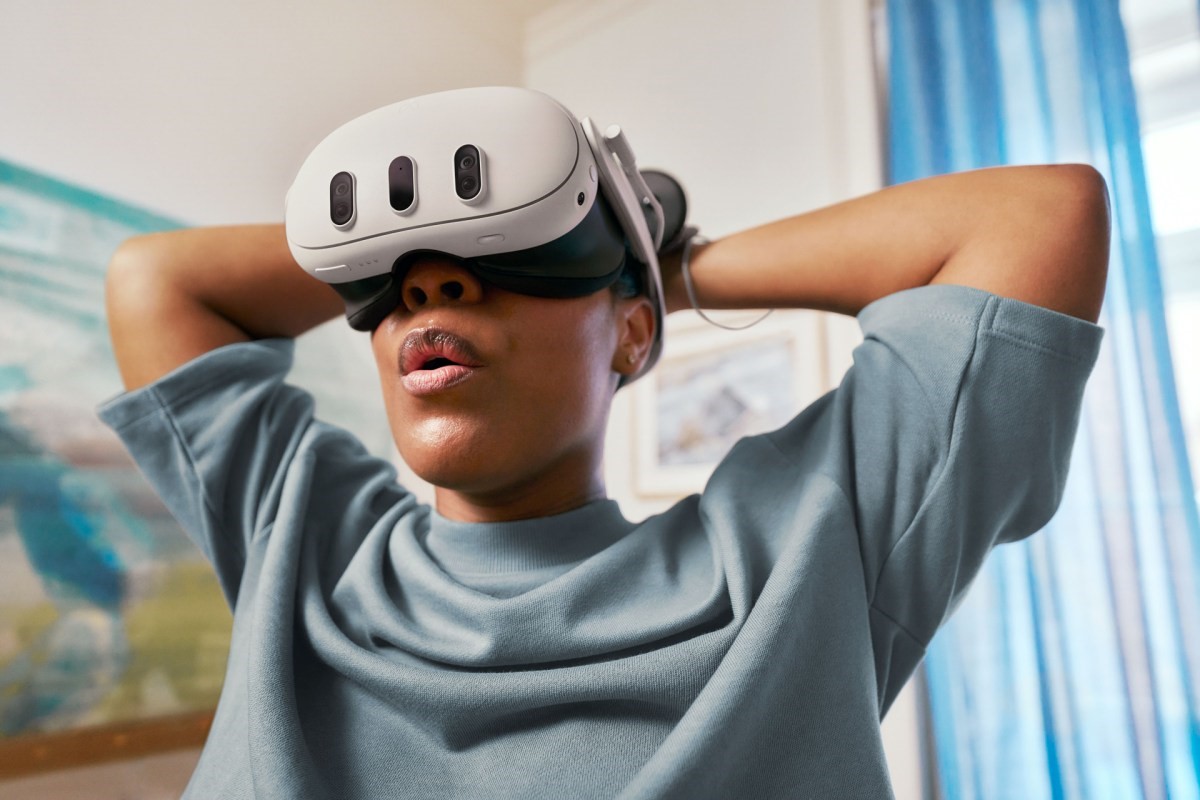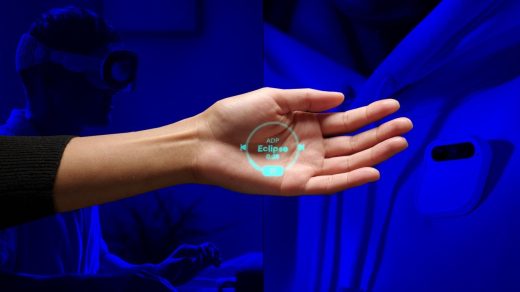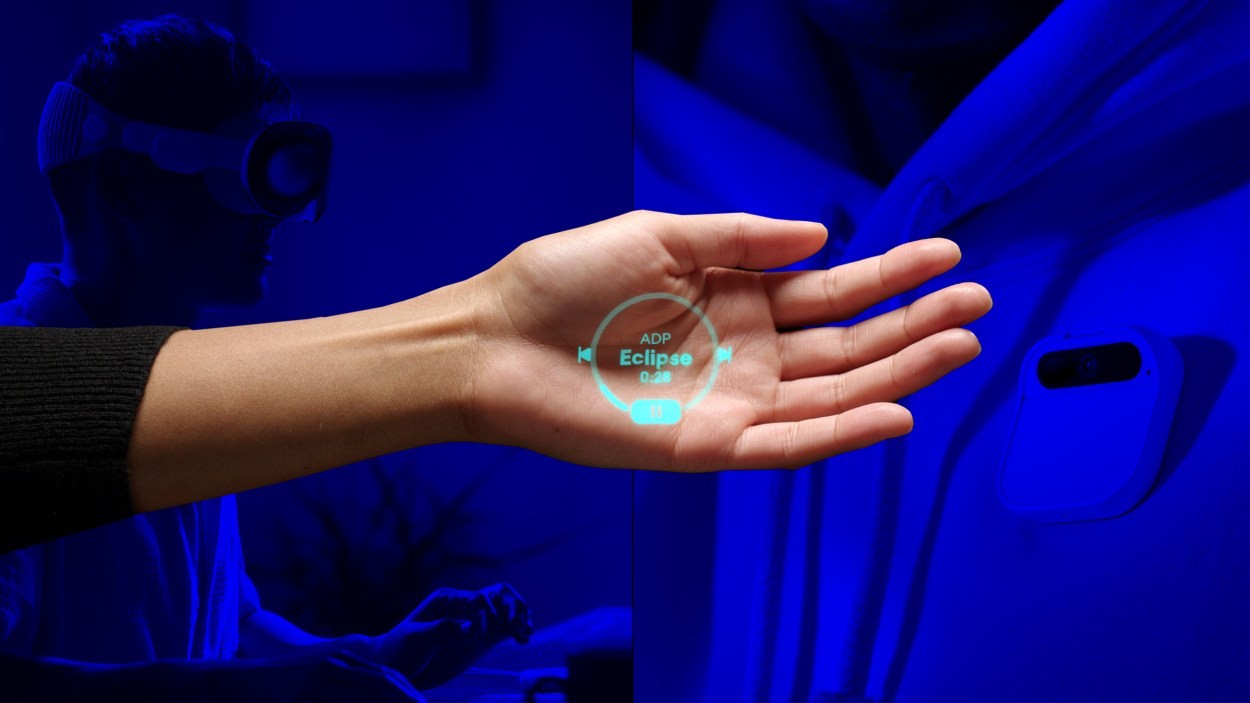It’s time to stop trying to replace the smartphone
Thanks as always for reading Plugged In, Fast Company’s weekly tech update. If a friend or colleague forwarded this edition to you—or you’re reading it on FastCompany.com—you can check out previous issues and sign up to get it yourself every Wednesday morning. I always enjoy hearing from you: Reach me at hmccracken@fastcompany.com.
Before we go any further, I’d like to shamelessly plug my cover story from our new Fast Company winter issue. It’s about Marques Brownlee (aka MKBHD), the definitive gadget critic of the YouTube age. To learn how a quiet New Jersey high school student became a trusted reviewer, online superstar, and founder of a growing media company, I spoke with everyone from Brownlee himself to tech-industry executives to someone with a unique perspective on his story: his mother.
Last week, after years of pre-launch expectations-building hype, the San Francisco startup Humane finally announced its AI Pin. Founded by Apple alumni Imran Chaudhri and Bethany Bongiorno and backed by $241 million in funding, the company set out to build a post-smartphone device. What it came up with was a little square gizmo you fasten to your clothing. Instead of tapping on a keyboard, you talk to it and gesture. Instead of incorporating a conventional display, it projects information on your palm. And instead of apps, it gives you an AI-powered environment designed to do everything from helping you manage your schedule to improving your eating habits.
Humane is positioning the AI Pin as an antidote to the smartphone’s addictive nature, letting you live in the present rather than staring at a screen. From a tech standpoint, it’s a radical rethink, but the overarching goal reminds me of two products I wrote about a few years ago: the Palm and the Lite Phone II. Neither ended up catching on in a meaningful way. After meeting with Chaudhri and Bongiorno and seeing the AI Pin for himself, my colleague Mark Wilson has his doubts about their creation, which he says hasn’t “fundamentally solved any significant problems we have with technology.” (Here’s his story.)

Other reactions to the AI Pin have tended to be just as skeptical as Mark’s. I for one am happy to see Humane try to pack so many new ideas into one product—down to its power system, which involves hot-swappable external batteries that double as the magnetic fastener that keeps the device attached to your garb. If nothing else, it all adds up to a bolder, more interesting gambit than smartphones whose very names—such as “iPhone 15” and “Pixel 8?—tell you they’re an iteration of an iteration of an iteration.
Still, the tech industry doesn’t seem to be anywhere near giving us something that might do to the smartphone what the smartphone once did to the dumbphones of yore. It’s not even clear that many people consider smartphones a product that needs replacing or an addiction they’re trying to beat. To me, at least, the launch video on Humane’s home page feels a bit like a pitch for cod liver oil, not something I’d instinctively prefer to an iPhone or Android phone.
A couple of years ago, the industry’s yen to displace the smartphone fueled widespread speculation that AR glasses of some sort would integrate smart enhancements into our lives more seamlessly than a pocket-sized screen ever could. Even before Facebook changed its name to Meta, CEO Mark Zuckerberg egged on that expectation with lavish, futuristic visualizations of such glasses blurring the line between the physical and digital in ways that aren’t yet possible. Since then, the extreme difficulty of building the requisite hardware has sunk in; at the recent Meta Connect 2023 conference, Zuckerberg dialed the vision’s grandiosity way back.
Then there’s Apple’s Vision Pro headset. It isn’t due until next year and is set to cost seven times as much as Meta’s new Quest 3 headset when it does. The company behind the iPhone isn’t about to market its new thing by painting the whole smartphone category as teetering on the edge of obsolescence. But even if Apple were willing to cast aspersions on the iPhone, the Vision Pro isn’t remotely ready to replace it as a mainstream, do-everything device, and won’t be until it’s far cheaper, more comfortable, and power-efficient. Apple is focused more on conveying what the Vision Pro will be able to do when it ships rather than what it might be able to do someday—and for now, that’s smart.

The AI Pin, Quest 3, and Vision Pro all depart from the smartphone in more ways than they resemble it, and that newness is as much a burden as a competitive advantage. It’s awfully tough to beat a mature device with one based on a different set of design decisions and tradeoffs that haven’t had time to gel. Even the Meta Quest 3—by far the world’s most fully-evolved mixed-reality headset—feels like an early draft compared to an iPhone or Android phone.
By contrast, the early smartphones succeeded in part because they were less new than they seemed. From their graphical user interfaces to QWERTY keyboards (either physical or touchscreen) to app-centric approaches to computing, they were pretty much personal computers you could stick in a pocket or purse, just as the laptop before it was a personal computer you could fold up and put in a briefcase. Their makers never claimed they could fully replace the PC in its conventional form, so nobody was disappointed when they didn’t.
Much of what makes the AI Pin intriguing, such as its voice-driven, AI-infused interface, could be incorporated into future smartphones that didn’t ditch everything about the category that isn’t broken. And if you still think the smartphone needs replacing, there are existing, well-established wearable categories that could take on AI Pin-like capabilities. Apple’s AirPods and Apple Watch are already beloved blockbusters, for instance. Either or both could lessen their dependence on the iPhone over time, bringing them closer to the AI Pin in concept.
Now, I realize that declaring the smartphone to be unbeatable would be risky. It might even turn out to be akin to championing the horse shortly before the arrival of the Model T. So, just to be clear: I don’t think that smartphones like the ones we use today are destined for immortality. But their stiffest competition could come from something that’s new, yet surprisingly familiar. For all the trying that’s going on, that doesn’t feel like a something that anyone has invented so far.
(18)



